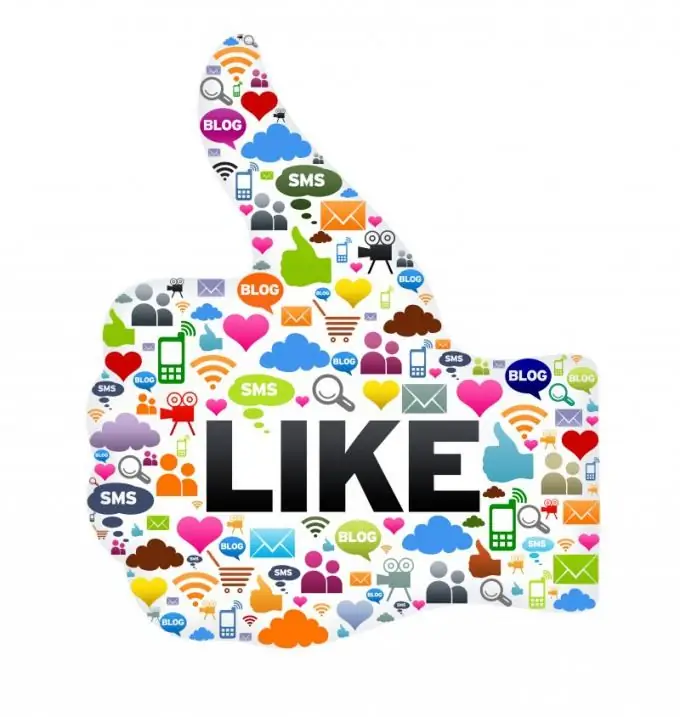- Author Lauren Nevill nevill@internetdaybook.com.
- Public 2023-12-16 18:48.
- Last modified 2025-01-23 15:15.
Social media is a great way to meet new people, get the latest news, and have fun playing a new game. Their diversity is sometimes frightening, and many do not see the difference between the most popular social services at all … What should a person choose who decided to start their socialization on the Internet?

Social media: quantity doesn't mean diversity
Today, the number of various social services for the exchange of information and media content is simply off scale: it is almost impossible to meet a person who is not a user of at least one social application or does not have a profile in at least one of the popular social networks.
The overwhelming majority of social networks have the same structure and serve the same purposes: people exchange messages, photos, videos, and also actively use the system of "likes" (like - positive reviews) and dislikes (dislike - negative reviews).
In fact, rarely a new social network has any difference from its progenitors and offers its users something radically unique.
In addition to the classic networks "for the people", today there are about three dozen popular sites for people with common interests. So, special social networks for programmers or artists are popular.
Why do some people prefer facebook, while others prefer vkontakte? Why does someone only use Skype (skype is a multifunctional service program for making calls over the Internet), while someone prefers the good old ICQ manager?
The point is that a particular social network can meet the needs and preferences of a particular individual. In this context, "preferences" most often mean design, interface and other features that can be called "implicit".
For example, several automated studies have shown that the contingent of users of facebook and odnoklassniki.ru is on average 7 years older than the contingent of the site vkontakte.ru.
Social networks and the need to use them
With the development of the Internet and the means of exchange of information, the private data of many people is more likely to be the common property of the whole world, rather than remain the "personal matter" of everyone.
Interesting fact: with the increase in the number of users of social networks, the number of people who decide to abandon any social services or publish personal data on the network also grows.
For some people, events related to the security of Internet users' data (data published by Edward Snowden that the CIA is spying on its citizens or numerous materials from the WikiLeaks website) are also prompting them to choose only one specific online tool that meets the goals and requirements of the user: Skype, icq managers, e-mail and other highly specialized "software", the use of which is possible without publishing your authentic data.






